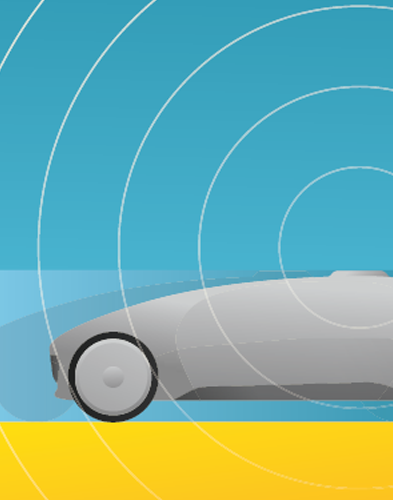What is the future of motor insurance business?

Considered as an idea straight out of science fiction at the beginning of the century, driverless cars are on the way of taking an important place in the society in a close time horizon: according to the Institute of Electrical and Electronics Engineers (IEEE), 70% of the cars will be driverless by 2040.
This technology actually represents one of the current biggest concerns about the future of insurance system in P&C. This new technology, supported by artificial intelligence and robotics, allows driving cars without human intervention.
The technology contains sufficient devices (e.g. numeric captors) and equipment (e.g. processors, sophisticated software) that are able to treat and analyze the car’s environment to adapt autonomously the driving.
Considering that 90% of accidents on the road are caused by human error (according to a KPMG 2014 study), driverless cars are seen as a good opportunity to reduce the number of accidents and improve the road safety.
For automobile manufacturers, or other industries (e.g. Google, Tesla, Uber), this is also an opportunity to increase mobility by developing new products and meet new technological challenges in a competitive context.
While some industrials have already designed driverless cars and are at the stage of testing and pilot commercialization, States are still working on specifying the legal framework for on-road testing of driverless cars.
For now, the rule is simple and still requires the driver to keep control of the car at any time. At the same time, semi-autonomous car technologies already exist and are commercialized (e.g. simple speed regulator, driver assistance systems).
While some industrials have already designed driverless cars and are at the stage of testing and pilot commercialization, States are still working on specifying the legal framework for on-road testing of driverless cars.
For now, the rule is simple and still requires the driver to keep control of the car at any time. At the same time, semi-autonomous car technologies already exist and are commercialized (e.g. simple speed regulator, driver assistance systems).
The emergence of driverless cars can disrupt motor insurance business. Simplest conclusion is to state that with a significant decrease of claims induced by driverless cars, insurers will observe lower risks (lower claims frequency) and then lower the level of premiums asked to customers, leading to a loss of 60% on the market of motor insurance by 2040 (as predicted by KPMG).
But this is without taking into account the new threats that will emerge, notably on the cyber risk side: what about the emergence of a natural catastrophe-like event where all cars are hacked at the same time? And although frequency of accidents is expected to decline, the cost of physical damage to cars themselves could become higher than it currently is due to the costlier and more numerous embarked technologies.
But this is without taking into account the new threats that will emerge, notably on the cyber risk side: what about the emergence of a natural catastrophe-like event where all cars are hacked at the same time? And although frequency of accidents is expected to decline, the cost of physical damage to cars themselves could become higher than it currently is due to the costlier and more numerous embarked technologies.
Decrease of premiums is not the only threat related to driverless cars for the insurance sector. In the insurance sector, there is an on-going debate on the attribution of liability after a driverless car accident. Who will be considered responsible: the car owner, the driver, the car manufacturer, software suppliers or operators, or organizations responsible for infrastructure maintenance?
Lawyers and insurers seem to agree that the responsibility will move from personal owners to car manufacturers, or car operators, but that anyway long-lasting procedures will take place to determine final responsibilities.
Lawyers and insurers seem to agree that the responsibility will move from personal owners to car manufacturers, or car operators, but that anyway long-lasting procedures will take place to determine final responsibilities.
In this context insurers will play a key role in building an insurance scheme which is viable from the society perspective and ensure injured people are protected at any time and victims are immediately compensated, not experiencing any delay related to long-lasting legal procedures.
In view of a future decrease of the motor insurance business, insurers have to re-think their motor insurance business model and take opportunities to innovate and adapt to their clients’ needs.
Insurers are used to accompany innovation, and here again, AXA, and the whole sector, will play their role to ensure that manufacturing defects, hacking threat and new liability insurance covers are set up to protect both citizens, drivers and motor manufacturers.
The driverless car opportunity is also an emerging risk which is one of the first real-life cases of larger debates on artificial intelligence and the way robots with machine-learning features make their "own” decisions: who will then be liable for the risks they entail? This is a question that is currently being debated at the European Parliament with the objective to create a more adapted legal framework.
By Hélène Chauveau, Head of Emerging Risks at AXA



